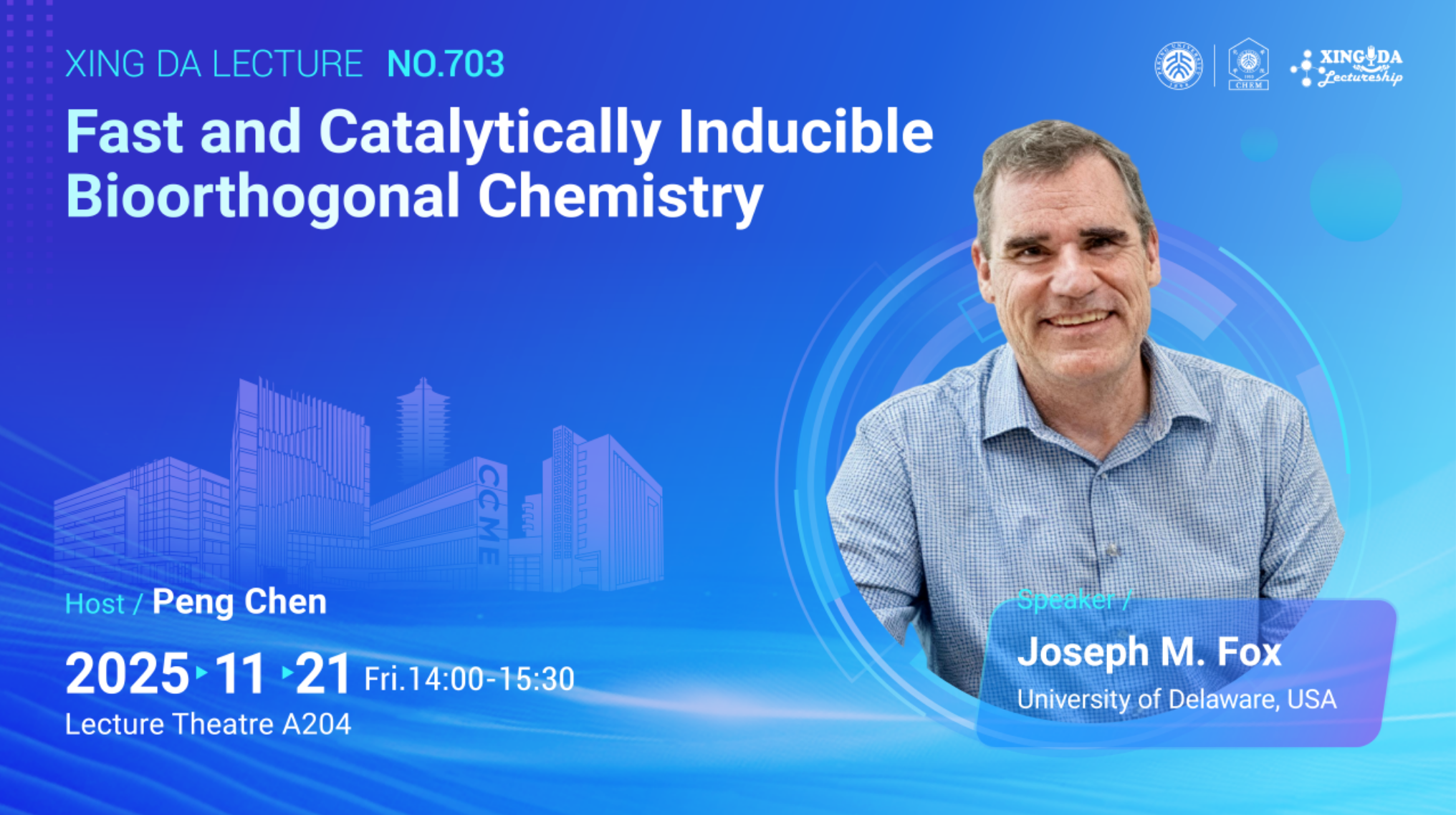
Abstract
This seminar will discuss recent advances in development of the tetrazine ligation– the fastest known bioorthogonal reaction. Tetrazine ligation has been used broadly by the scientific community, and finds application across chemical biology, medicine, nuclear medicine, and material science. The talk will describe advances in photochemistry, flow chemistry, and cross-coupling chemistry that have enabled access to improved trans-cyclooctene and tetrazine reagents including a suite of tool molecules developed in collaboration between UD and Pfizer. The talk will also discuss the catalytic activation of bioorthogonal chemistry, or CABL, a new method for ‘turning on’ rapid bioorthogonal chemistry in vivo and in cellular context through the oxidation of dihydrotetrazines to tetrazines. Enzymatic catalysts as well as photocatalysts with dye-selective activation with blue, green, red or NIR light will be described. Kinetic studies have been used to develop a proposal explaining the rapid kinetics of CABL and the biocompatibility of CABL-photocatalysts due to chemoselective dihydrotetrazine oxidation in preference to singlet oxygen production.
Biography
Joseph M. Fox is Professor of Chemistry in the Department of Chemistry and Biochemistry at the University of Delaware, where he also is the Director of the NIH-funded Center of Biomedical Research Excellence on the Discovery of Chemical Probes and Therapeutic Leads. In 2023, he was named a Francis Alison Professor—UD’s highest faculty honor. Fox received his bachelor’s degree from Princeton University, where he conducted undergraduate research as a Pfizer fellow with Maitland Jones Jr. He completed graduate studies under Thomas Katz at Columbia University. He studied organometallic chemistry with Stephen Buchwald at MIT as an NIH postdoctoral fellow.
In 2001, Fox joined the faculty at UD, and he has built a multidisciplinary program that centers on reaction development in chemical biology. Work in his group has included the development and application of tetrazine ligation— a widely-used bioorthogonal reaction that allows for extremely rapid conjugation to biological macromolecules in living systems. His group remains highly focused on developing new organic reactions, including catalytic methods for activating chemistry in cells and in vivo. Applications of his work span biology, drug discovery, radiochemistry, imaging, therapy and materials science.
His work to develop tetrazine ligation was discussed and cited in Nobel committee’s scientific background Press Release on 2022 Nobel Prize in Chemistry. He has also been recognized with a 2023 American Chemical Society Cope Scholar Award.